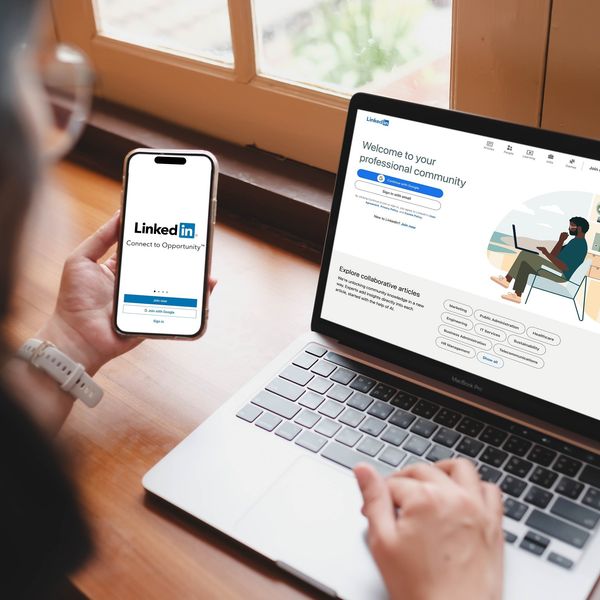
Say Goodbye to Bad Ads, but Don't Kill Your Advertising Budget
Mobile users hate banner ads, TV viewers fast-forward through commercials and newspapers can't sell enough advertising space to keep reporters on staff. But none of these truths trumps a hard fact: the $140 billion a year advertising industry in the U.S. has grown in each of the last 3 years and is expected to top $170 billion in 2013, according to emarketer.com
And the amount spent on the most hated type of advertising -- mobile -- is expected to more than double -- from $3.4 billion in 2012 to as much as $8.5 billion this year, Emarketer reports.
All of this spending does not guarantee the success of advertising. And it certainly doesn't mean you should increase advertising spending for your company. But it does indicate that there remains a great deal of faith -- and potential -- in ad spending. Success depends on how and where you spend your money and, more important, on the content of your ads.
Advertising is not dead. But bad advertising -- the annoying ones that stalk you on the Internet or demand that you type a text message to opt-in to a pitch -- will soon meet a timely death. Story-driven ads, however, are here to stay.
Bears and Diamonds are Eternal
What's your story? keyboard key. Because everyone loves a story -- no matter how or why it's told. Content marketing thrives on storytelling -- and storyselling -- by connecting brands with customers in meaningful ways. But compelling stories told in advertising platforms also create lasting relationships. Smokey the Bear has been urging people to prevent forest fires since 1944, and there's every reason to believe that DeBeers' "A Diamond is Forever" campaign will last as long as men and women believe in the promise of marriage.
The art of storytelling got lost in the infancy of the Internet. Content was nothing more than keywords strung together with an occasional verb, and ads had little meaning beyond the frantic urging to "CLICK HERE" or "BUY NOW."
As the Internet aged, digital marketing matured. Technology has returned to its rightful place as a marketing tool, but not its driving force.
Don't give up on advertising as a way to promote your brand and drive sales, but spend your budget wisely. Consider these three ways to increase the value of your online advertising dollars:
1. Don't rush to advertise.
If you're a new business owner, resist the urge to advertise your company until you have a sound marketing strategy in place. I've known entrepreneurs who spent their entire advertising budget before they made a single sale -- and some who overspent before they even had a product ready to sell.
Do your homework before you open your wallet. Know who wants to buy your product and why. Social media provides an inexpensive form of market research. Use your Twitter, Facebook, LinkedIn and Google+ accounts to ask your followers and group members what they think of your product.
Another option is to promote your product on Kickstarter or a similar crowdfunding platform. You don't have to make raising money your goal: use crowdfunding as a way to test the viability of your product -- and as a form of free advertising.
2. Choose your keywords carefully.
It only takes a few minutes to set up a Google AdWords campaign, but it may take days or weeks of research to find the most cost effective keywords for your company. Consider how many customers or clients you need. If you're selling toothpaste, you may need hundreds of thousands or millions to clear a profit. If you're selling multi-million dollar railroad cars and have few competitors, you don't need many customers.
Don't look for the most popular keywords. Look for the smartest ones. Thorough keyword research is a long, tedious process. If you lack the patience or aptitude to do it yourself, spend a few hundred or a few thousand dollars to hire a keyword analyst -- you will save money in the long run.
3. Don't confuse keywords with your message.
Successful search engine advertising demands strategic use of keywords. No one will see your banner ad for tomato soup if your copy doesn't include the words soup and tomato. Keywords get people to click. But messages get people to buy.
Make sure that your landing page is interesting, attractive and informative.
Think of your keyword-focused ad as an invitation and your landing page as the party. How long would you stay at a party if the host just kept telling you what a great party he was throwing?
Engage your visitors so they don't go party-hopping to your competitor's site. Entice them with stories about your brand and convert them by giving them leading roles in the tale. They'll reward you by returning frequently to your site and buying the services or products you sell.
The average person spends about 3 hours a day online. So, don't rush to bore or annoy them with your ads. Wow them with story-driven advertising, and they'll spend time - and money -- on your website.



